
AKB48’s First Single in Half A Year Will Be Released on September 18! The Center Is Moeka Y...
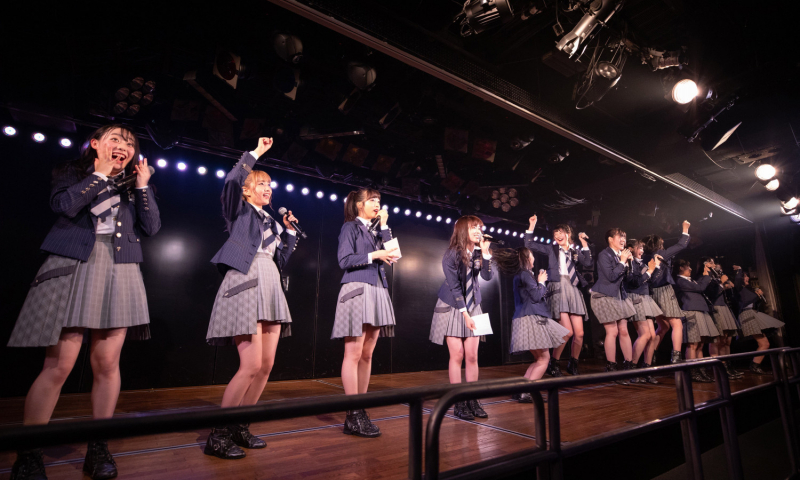

Sponsored Links
In Japan, where it is said that “spring is the season of new beginnings and farewells”, idol “graduations (sotsugyou)” and “withdrawal (dattai)” aren’t only things that happen at the end of the school year like school graduation ceremonies. Now it has become something that happens all year round.
「春は別れと出会いの季節」と日本では言うが、アイドルの「卒業」や「脱退」は、学校の卒業式のように年度末にだけ行われるものではない。もはや年中行事と化しているのが現状だ。
Japanese idol otaku are sensitive when the words “important announcement” (taisetsu na oshirase) appear on their Twitter timeline. It’s fine if it’s a good announcement but, announcements of “graduation” and “withdrawal” are usually among the words that follow.
「大切なお知らせ」という文字列がTwitterのタイムラインに流れてくることに、日本のアイドルオタクたちは敏感だ。良いお知らせであればいいが、良くないお知らせだとしたら、それは「卒業」や「脱退」のお知らせだと相場が決まっている。
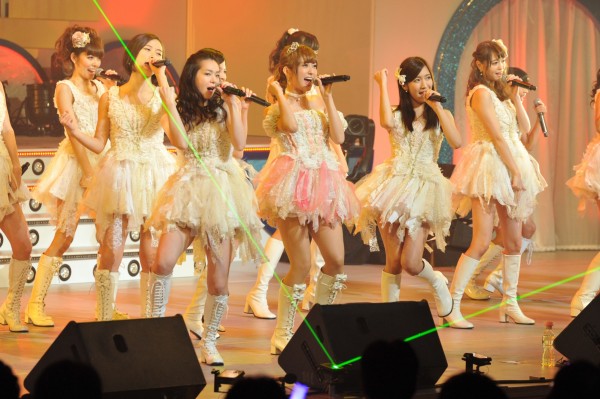
Idoling!!! announced that all the members are going to “graduate” from the group this October.

Minami Takahashi will graduate at AKB48’s 10th anniversary concert on December 8th

Rina Kawaei will graduate from AKB48 (The date unannounced yet). It seems that the shock of being attacked at a handshake event left lingering psychological effects.
But why do so many idols express a simple “departure” from the group as a “graduation”? Is there actually a difference between a “graduation” and a “withdrawal”?
しかし、なぜアイドルは単なるグループからの「脱退」を「卒業」と表現することが多いのだろうか? そもそも「卒業」と「脱退」は何が違うのだろうか?
The root concept of the Japanese “graduation ceremony” was born after the Edo Shogunate fell and the Meiji government enforced a “school system” in 1872. Having been isolated for over 200 years under the Edo Shogunate, a school system somewhat resembling the modern school system was introduced to Japan. How the modern notion of a “graduation” suddenly came to be used in the idol business is of great interest.
日本で「卒業式」のルーツとなる概念が生まれたのは、江戸幕府が倒れた後の1872年に明治政府が「学制」を施行して以降のことだ。江戸幕府のもと200年以上鎖国していた日本で、開国後に導入されたのが学制という近代的な学校制度だった。そうした近代的な概念である「卒業」が、いつのまにかアイドルビジネスで使われるようになったことは興味深い。
One important point is that, to Japanese, the word “graduation”(sotsugyou) carries a far off, softer image than the word “withdrawal”(dattai). Although the two words mean the same thing, the impression they leave is very different.
重要なことは、日本においては「卒業」という言葉のほうが「脱退」という言葉よりもはるかにソフトなイメージを与えるということだ。同じことを意味するとしても、印象がかなり違うのだ。
When “withdrawal” is used, it brings to mind thoughts of something like trouble within the group. However, by replacing it with “graduation”, it strangely gives the impression that the graduating member still maintains a good relationship with management and the remaining members.
「脱退」と言うと、グループの内部でトラブルがあったのかと思わせる。ところが、それを「卒業」と言い換えるだけで、卒業メンバーが運営や残留メンバーと友好的な関係を維持しているかのように感じられるから不思議な話だ。
In Japan, when you use the word “graduation”, there’s an image of having learned something like in school, and then spreading your wings towards the future. There are actually idols that have done this. Many idols that belong to a large agency have a path of activity carved out for them after their “graduation”. However, it’s hard to say that all “graduations” follow this happy pattern.
日本で「卒業」という言葉を使うと、学校のように何かを学び、そして未来へと羽ばたくようなイメージになる。実際にそうしたアイドルはいる。大きい事務所に所属するアイドルは、「卒業」後の活動の道筋がついていることが多い。ただ、すべての「卒業」が幸福なパターンであるとは言い難い。
For example, on Rhymeberry’s official site on February 26, 2015, there was an announcement displayed about the sudden “graduation from Rhymeberry” by two members, and if anyone thought, “Oh, how great!” they should probably get their head examined. The following day on February 27, 2015, an official statement was made nonetheless, but contained no details or date and time for the joint graduation of the members and producer, nor for the new line-up.
たとえば2015年2月26日にライムベリーの公式サイトで、突然メンバー2人について「ライムベリーから卒業いたしました」という発表を事後報告でされたとき、「それは素晴らしいことだ」と考えた人がいたのなら、むしろ会って頭の中をのぞいてみたい。翌日の2015年2月27日には、ライムベリーから離れることになったメンバーとプロデューサーが連名で、「卒業」や新体制についての発表内容や発表日時を事前に共有されていなかったとの声明を出したのだからなおさらだ。
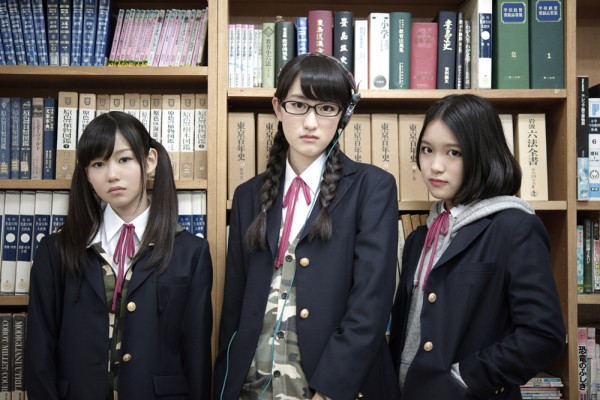
MC HIME (left), DJ HIKARU (center) left the group. Only MC MIRI (right) remains.
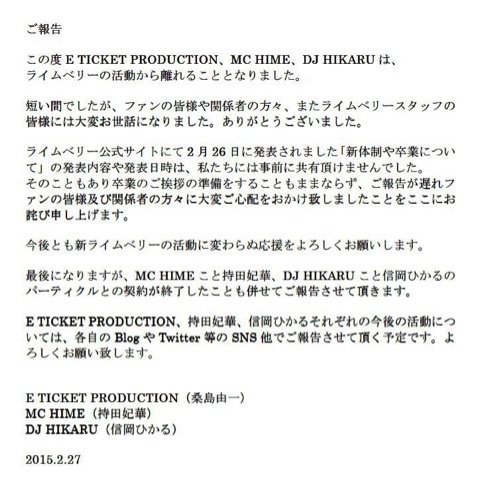
The announcement on the official site
I wonder what kind of “graduation” is announced by grown ups, while unbeknownst to the actual members. Is it some sort of challenge to the modern system of “graduation”?
メンバー本人も知らないうちに大人が発表する「卒業」とはなんだろう。「卒業」という近代的概念への挑戦でもしているのだろうか?
On April 28, 2015, the announcement that three members from Dorothy Little Happy would “graduate” was met with astonishment. It will be a “graduation” of three out of five members. Regarding their “graduation” at Nakano Sun Plaza on July 12, 2015, any offhand statements regarding its current progress were avoided, and in addition to the abruptness of the announcement, comments from the “graduating” and remaining members on their official site contained differences in tone, and were received with complicated impressions.
2015年4月28日に、Dorothy Little Happyから3人のメンバーが「卒業」することが発表されたときも驚愕した。メンバー5人中3人もの「卒業」である。2015年7月12日の中野サンプラザで「卒業」することになっており、現在進行中の事態なのでうかつな発言は避けるが、発表の唐突さに加えて、残留するメンバーと「卒業」するメンバーの公式サイトでのコメントには温度差もあり、複雑な印象を抱いた。

Current members

Akimoto, Tominaga, Hayasaka leave and only Shirato and Takahashi remain
In addition to “graduation” and “withdrawal”, there’s also the pattern of “dismissal” but, this is usually reserved for instances insisted upon by the agency when terms of agreement were not kept. Setting aside the management ability of the agency in situations like these, the circumstances are easier to understand than a vague “graduation”. To summarize, the agency has expelled the member from the group for some reason or another.
「卒業」や「脱退」のほかに、「解雇」というパターンもあるが、これはメンバーが契約内容を守らなかったと事務所が主張するパターンが多い。そうした事態になった事務所の管理能力はさておき、漠然とした「卒業」よりはわかりやすい状況でもある。要するに、事務所が何らかの理由でメンバーをグループから追放するわけであるからだ。
But with “graduation” or “withdrawal”, the big opportunity either presents to the idol business is the same. Many people rush to a graduation or departure performance. Lots of people, for example, will rush to a milestone concert, even if they are not especially fond of the group or the “graduating” or “withdrawal” member(s). The graduation performance is like a “graduation ceremony” open to strangers, so to speak.
そして「卒業」であれ「脱退」であれ、それがアイドルビジネスにとって大きな商機であることには変わりはない。卒業公演や脱退公演には多くの人が駆けつける。たとえ「卒業」あるいは「脱退」するメンバーや、そのグループに特段の思い入れがなくても、節目のライヴには駆けつける人が多い。卒業公演とは、いわば見知らぬ人々にも門戸が開かれた「卒業式」だ。
The same thing happens with the disbandment concert of an idol group. We seek out the kind of spectacle where idols severely shake up our emotions. This is why the word “emoi” (meaning “emotional”), in regards to the Japanese idol scene, acts like a drug.
同様のことは、アイドルグループの解散ライヴでもよく起きる。私たちは、アイドルたちが感情を激しく揺さぶってくれる光景を求めて行動する。だからこそ、日本のアイドルシーンにおいて「エモい」(エモーショナルである、という意味だ)という言葉は麻薬のように機能している。
The difference between “graduation” and “withdrawal” is something calculated by grown ups, but the attitude with which idol otaku receive “graduation” or “withdrawal” is the same. We seek out a spectacle that will intensely rock our emotions. This isn’t something particularly humbling. Somehow we feel more concerned in cases where graduation or departure performances have not been arranged.
「卒業」か「脱退」かの違いは大人の打算によるものだが、それを受容するアイドルオタクの側の姿勢は「卒業」でも「脱退」でも変わらない。情動を激しく揺り動かしてくれる光景を求める。それが特に下賤だとは思わない。なぜなら、卒業公演も脱退公演も用意されないケースがあることのほうが気になるからだ。
In other words, there’s a part of “graduation” and “withdrawal” that shows the dark side of the idol business. No matter if “graduation” or “withdrawal” is used, depending on whether a graduation or departure performance is properly held, you can see the management’s stance. You could probably say the most delicate part of the idol business, is handling “graduations” and “departures”.
言い換えれば、「卒業」や「脱退」は、アイドルビジネスの暗部が顔を出しがちな部分でもある。「卒業」と「脱退」のどちらの言葉を使うかはもちろん、卒業公演や脱退公演をちゃんと行えるかで、その運営のスタンスは見えてくる。アイドルビジネスの中でも、もっとも繊細になるべき部分が「卒業」や「脱退」の取り扱い方であると言えるだろう。
Related links
Dorothy Little Happy Official Site : http://dorothylittlehappy.com/
Rhymeberry Official Site : http://rhymeberry.tokyo/
Translated by Jamie Koide
Sponsored Links
Dorothy Little Happy
[Exclusive Program] Tokyo GIrls’ Update TV #006 : SBY in Shibuya109 & Pikarin’s Cosplay
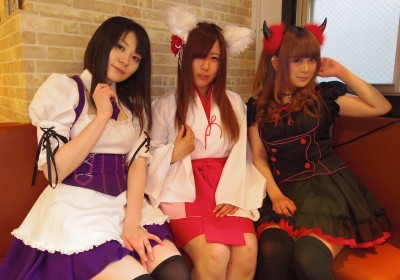
“Being Thin=Cute” is Strongly Believed : Disclosing the Harsh Days of the Workers at “Moe-kei Café” in Akihabara



